4251655405627,
4604926591010,
1964413780027,
1463341711419,
1463341580347,
2340932845627,
4417179680802,
4621538263074,
4418721120290,
4342007955490,
4342012641314,
4621539049506,
2096833134651,
4342004973602,
4531832422434,
7155325075490,
4298732109858,
4298724802594,
6807031513122,
4298752491554,
4298739253282,
4821848031266,
4821851275298,
4821852684322,
2057766109243,
4821849145378,
4821851832354,
2057766043707,
2110561386555,
4821848621090,
2057766207547,
4418648539170,
2057766273083,
4821850357794,
2057766338619,
4418649292834,
2233849741371,
2280821456955,
7092312277026,
7092315029538,
7092317257762,
7196534636578,
4593651548194,
4593652170786,
7506102091810,
4418643951650,
4826589036578,
1940509392955,
1940509327419,
1940509261883,
1940509655099,
2057766109243,
1940509556795,
2057766043707,
1940509917243,
2110561386555,
2057766207547,
1940509950011,
4418648539170,
2001562140731,
2057766273083,
2057766338619,
1940509491259,
4418649292834,
4553826893858,
2280821456955,
2065906237499,
4604926591010,
7174372753442,
2288925311035,
7506484133922,
2096833134651,
2096812687419,
2233714114619,
4418722365474,
4298732109858,
4298724802594,
7506494980130,
4854127329314,
4298752491554,
4298739253282,
4854126051362,
6554110623778,
7186220417058,
2057766109243,
2057766043707,
2110561386555,
2057766207547,
1463343382587,
4418648539170,
2001562140731,
1463343644731,
2057766273083,
1463343284283,
1463345020987,
1463343120443,
2057766338619,
1463343513659,
1463343218747,
4418649292834,
4553826893858,
2233849741371,
1463343415355,
2280821456955,
2225439768635,
2225457987643,
4826598473762,
4826594082850,
4418643951650,
4801911685154,
4801910407202,
4801907621922,
4821851832354,
1964413780027,
2037985411131,
4407429955618,
2233668927547,
2288925311035,
6857563308066,
4828452945954,
4567183392802,
4531832422434,
4531837468706,
4860352233506,
4828435185698,
4418635497506,
4828454715426,
4525233635362,
4828449898530,
4828447113250,
4525222363170,
4828433448994,
4828445179938,
6840995676194,
4828437807138,
4418643951650,
6807031775266,
2192399171643,
2233687867451,
4342043934754,
4342028697634,
2068775305275,
2285113016379,
2285110493243,
2285111607355,
4417179680802,
4621538263074,
2288925311035,
2236223488059,
4418721120290,
4342012641314,
4621539049506,
4342004973602,
4391780581410,
4391781335074,
4418635497506,
4525222363170,
7155325075490,
4418643951650,
1940509261883,
2057766109243,
2057766043707,
1940509917243,
2110561386555,
2057766207547,
4418648539170,
2001562140731,
2057766273083,
2057766338619,
4418649292834,
4553826893858,
2233849741371,
2285116620859,
2285115015227,
2280821456955,
2065906237499,
4826598473762,
4826594082850,
7506102091810,
4418643951650,
1964413845563,
4398428127266,
4346590068770,
4390566035490,
4417180794914,
4418739535906,
4421471993890,
4421474058274,
4801895202850,
7139714072610,
7092317257762,
7092315029538,
7092312277026,
4801911685154,
4801910407202,
4801907621922,
7187084378146,
7204482023458,
7201698021410,
7735974854690,
7557307891746,
4531852935202,
7445493317666,
4531832422434,
4531837468706,
6860154765346,
6860191170594,
7210864443426,
6860140707874,
4378266533922,
4378248773666,
7092312277026,
7139714072610,
7092315029538,
7092317257762,
6860140707874,
7210864443426,
6860154765346,
6860191170594,
4861072343074,
4861072572450,
4861073555490,
4861073031202,
7018182049826,
7316419772450,
6540090998818,
6540090867746,
6540090179618,
6540090834978,
6900703264802,
4839392346146,
2057766338619,
7224626610210,
4418635497506,
2110561386555,
6882170765346,
2057766273083,
4418649292834,
2057766043707,
2280821456955,
4418643951650,
2057766109243,
2057766207547,
4839391559714,
4418648539170,
2301259087931,
2233843253307,
2233849741371,
2265638928443,
2265646596155,
2237457956923,
2236223488059,
7416600297506,
6797218742306,
6828178374690,
6828182798370,
6828174770210,
7180099321890,
4801911685154,
6962304057378,
7019410391074,
7194159939618,
4604926591010,
7000327749666,
7166287216674,
7194157154338,
6993117839394,
7175549354018,
4801911685154,
2193809408059,
7224626610210,
4858467975202,
6965684961314,
4604931244066,
1463345184827,
4801910407202,
1940509392955,
6864441868322,
1940509327419,
1972835156027,
6965686534178,
4847539716130,
7186220417058,
4847548563490,
1940509261883,
4821848031266,
4847544631330,
7208468054050,
4812825329698,
4801907621922,
2125531643963,
7233701871650,
4821851275298,
2125519290427,
4821852684322,
1940509655099,
4604935208994,
2057766109243,
4818051760162,
6582132146210,
4821260173346,
4821849145378,
7208469200930,
4511014453282,
4538407059490,
6582134374434,
7196755656738,
4821851832354,
1964413780027,
2236223488059,
4817790042146,
4817789517858,
4817788796962,
2310770655291,
6962304057378,
6973562814498,
7019410391074,
6800385179682,
6831458713634,
7000327749666,
6993117839394,
7175549354018,
7224626610210,
6965684961314,
7176698593314,
6965686534178,
7119074656290,
7233701871650,
7196755656738,
7195928756258,
7539775930402,
6543618048034,
7187163512866,
7177981362210,
6797218742306,
7551097208866,
7024036839458,
4861069951010,
4861070442530,
7708859924514,
7204836409378,
4849741463586,
4859874312226,
7739044364322,
6540090179618,
7316419772450,
7018182049826,
6900703264802,
6540090834978,
6540090998818,
6540090867746,
7187084247074,
7187084378146,
7181341982754,
7160934662178,
7160933220386,
7224626610210,
2057766109243,
2057766043707,
4839391559714,
2110561386555,
2057766207547,
4839392346146,
4418648539170,
2057766273083,
2057766338619,
4418649292834,
2280821456955,
4418635497506,
6882170765346,
4418643951650,
4538407059490,
4538405912610,
4538407059490,
4538405912610,
7739044560930,
7739044429858,
7739044134946,
7693479346210,
7208469200930,
4855594844194,
4849741594658,
6973562814498,
6800385179682,
6831458713634,
6993117839394,
4430450688034,
7176698593314,
4537690456098,
4531852935202,
7119074656290,
6867962920994,
6867957776418,
7195928756258,
6867954860066,
1463343382587,
1463343644731,
4597004369954,
1463343284283,
1463345020987,
1463343120443,
6788487217186,
1463343513659,
6806061219874,
1463343218747,
4097510441019,
6999427088418,
6813171679266,
2233849741371,
1463343415355,
4163797483579,
2265638928443,
4418718924834,
2285113016379,
2285110493243,
6797218742306,
2285116620859,
2285111607355,
2340932845627,
7174860668962,
2285115015227,
2233843253307,
2265646596155,
4803710517282,
4418721120290,
2285119275067,
4391780581410,
4391781335074,
2237457956923,
2225439768635,
4380299329570,
2225457987643,
7082697031714,
7739044495394,
2193809408059,
4418724757538,
2233849741371,
2265638928443,
2233843253307,
2265646596155,
2236223488059,
2237457956923,
2301259087931,
7416600297506,
6808529174562,
7186005917730,
7186005950498,
7186005884962,
7186005983266,
7186006016034,
7143987839010,
7187084378146,
7187084247074,
14833803002232,
7215834038306,
6938087522338,
14700858900856,
6938030768162,
6938054950946,
4418723905570,
4418746056738,
4418751496226,
4418724757538,
7195930853410,
7210864050210,
4418723119138,
7136951828514,
7753565208610,
7076483334178,
6962304057378,
4604931244066,
4430450688034,
4537690456098,
2125531643963,
2125519290427,
4538407059490,
1964413780027,
1940510081083,
4343034708002,
4343034052642,
1463343382587,
1964413845563,
1463343644731,
1463343284283,
2068775305275,
1463345020987,
1463343120443,
6788487217186,
1463343513659,
1463343218747,
7108408541218,
6813171679266,
2233849741371,
1463343415355,
4163797483579,
2265638928443,
2310770655291,
4366360608802,
1811613646907,
2233843253307,
4342000517154,
2265646596155,
2236223488059,
4418721120290,
4342012641314,
4342007955490,
4342004973602,
2237457956923,
2273684750395,
4538405912610,
4567183392802,
2225439768635,
2225457987643,
6974216175650,
4342052126754,
4850619220002,
4850609356834,
4850610831394,
4342043934754,
6828178374690,
6828182798370,
6828174770210,
4378248773666,
4378266533922,
7506484133922,
6962084675618,
6857563308066,
6803741376546,
4860352233506,
4848878714914,
4828454715426,
4828452945954,
4828445179938,
4828437807138,
4828435185698,
4828433448994,
4801911685154,
4801910407202,
4801907621922,
4621539049506,
4604926591010,
4567183392802,
4525233635362,
4525222363170,
4418722365474,
4418721120290,
4391781335074,
4391780581410,
2340932845627,
2288925311035,
2285113016379,
2285111607355,
2285110493243,
2273684750395,
2271704973371,
2233714114619,
2068775305275,
2037985542203,
1964413780027,
1463341711419,
1463341580347,
1463341514811,
4821260173346,
4853284044834,
4853283291170,
4417179680802,
4417180794914,
4606660476962,
7155325075490,
4827359281186,
4606664507426,
4606643798050,
4606645108770,
4606644224034,
4827357413410,
4606662443042,
4827356594210,
6808529174562,
4827355480098,
4827358330914,
6808523702306,
6551350804514,
6551338942498,
7208469200930,
7195930230818,
7195929870370,
7187084378146,
7187084247074,
7186005884962,
7177981362210,
7176698593314,
7175549354018,
7166287216674,
7160934662178,
7160933220386,
7143987839010,
7119074656290,
7076483334178,
7019410391074,
7000327749666,
6999427088418,
6993117839394,
6973562814498,
6965686534178,
6965684961314,
6962304057378,
6893479952418,
6893479428130,
6831458713634,
6807031775266,
6803741868066,
6800385179682,
6797218742306,
6543618048034,
4855592615970,
4855589109794,
4855587962914,
4846166900770,
4828418900002,
4826592313378,
4620834111522,
4613000527906,
4417178140706,
4380299329570,
4343034708002,
4343034052642,
2340932845627,
2193809408059,
1940510081083,
7195930853410,
7195930230818,
7187084378146,
7187084247074,
7186005983266,
7186005917730,
7186005884962,
7181931511842,
7181341982754,
7174550781986,
7076483334178,
6962077630498,
6962058526754,
6893480050722,
6893479985186,
6893479952418,
6893479428130,
6808529174562,
6808523702306,
6802863718434,
4855587962914,
4828418900002,
4613000331298,
4531860176930,
4418751496226,
4418746056738,
4418724757538,
4418723905570,
4418723119138,
4398428127266,
4391781335074,
4391780581410,
4163797483579,
2340932845627,
2193809408059,
7739044757538,
7739044724770,
7739044659234,
7739044560930,
7739044495394,
7739044429858,
7739044364322,
7739044298786,
7739044167714,
7739044134946,
7659872288802,
7195930853410,
7195930230818,
7181341982754,
7160934662178,
7076483334178,
6812355952674,
6803742064674,
6803741868066,
6803741605922,
6803741376546,
6803740885026,
6803740590114,
6803740229666,
4826575568930,
4418718924834,
4342052126754,
2285119275067,
7739044757538,
7739044724770,
7739044659234,
7739044560930,
7739044495394,
7739044429858,
7739044364322,
7739044298786,
7739044167714,
7739044134946,
7195930230818,
7187084378146,
7187084247074,
7186005950498,
7186005917730,
7181931511842,
7160934662178,
7160933220386,
6962077630498,
6962058526754,
6831458713634,
6807031775266,
6807031513122,
6803741868066,
6797218742306,
4855592615970,
4855589109794,
4855587962914,
4846166900770,
4826592313378,
4821260173346,
4613000527906,
2340932845627,
2193809408059,
7659872288802,
7195931082786,
7195930230818,
7186005983266,
7076483334178,
6812355952674,
6807031775266,
4856242143266,
4855592615970,
4855589109794,
4850626363426,
4850619220002,
4849741529122,
4848879009826,
4848878911522,
4848877862946,
4843010261026,
4843008819234,
4828421652514,
4827359281186,
4827357413410,
4827356594210,
4826575568930,
4820442185762,
4623391850530,
4613000331298,
4607131680802,
4606664507426,
4606645108770,
4606644224034,
4606643798050,
4599039262754,
4586494820386,
4560082206754,
4559987507234,
4554819502114,
4553841508386,
4398428127266,
4383402229794,
4380299329570,
4342052126754,
4097510441019,
2340932845627,
2332529590331,
2310853918779,
2310853034043,
2285119275067,
2273690484795,
2265646596155,
2265638928443,
7019410391074,
2193809408059,
4858467975202,
4604931244066,
6864441868322,
4430450688034,
4537690456098,
4847539716130,
4847548563490,
4847544631330,
4812825329698,
2125531643963,
2125519290427,
4604935208994,
4818051760162,
6582132146210,
4821260173346,
7208469200930,
4538407059490,
6582134374434,
4801896218658,
4812824379426,
4622404976674,
7169606254626,
6582125494306,
7180099321890,
4343034708002,
4622406975522,
4818053398562,
4847550660642,
4818067324962,
7186005884962,
6582136832034,
6548265992226,
4820342734882,
4820334182434,
6582129623074,
4849741168674,
4553857466402,
4597004369954,
7139714072610,
4849741529122,
4818066636834,
6788487217186,
7180099649570,
6806061219874,
4820329201698,
7169187217442,
7076483334178,
4622407794722,
7019410391074,
2193809408059,
4858467975202,
4604931244066,
6864441868322,
4430450688034,
4537690456098,
4847539716130,
4847548563490,
4847544631330,
4812825329698,
2125531643963,
2125519290427,
4604935208994,
4818051760162,
6582132146210,
4821260173346,
7208469200930,
4538407059490,
6582134374434,
4801896218658,
4812824379426,
4622404976674,
7169606254626,
6582125494306,
7180099321890,
4343034708002,
4622406975522,
4818053398562,
4847550660642,
4818067324962,
7186005884962,
6582136832034,
6548265992226,
4820342734882,
4820334182434,
6582129623074,
4849741168674,
4553857466402,
4597004369954,
7139714072610,
4849741529122,
4818066636834,
6788487217186,
7180099649570,
6806061219874,
4820329201698,
7169187217442,
7076483334178,
4622407794722,
4538407059490,
4607131680802,
4097510441019,
2069520711739,
2265638928443,
6848441778210,
2265646596155,
2285119275067,
2037985017915,
2237457956923,
4538405912610,
6974209359906,
4380299329570,
4342052126754,
4383402229794,
2332529590331,
2273690484795,
2310853918779,
4553841508386,
4599039262754,
2310853034043,
4827359281186,
4623391850530,
4606664507426,
4606643798050,
4606644224034,
4848877862946,
4554819502114,
4586494820386,
6962090868770,
6803740590114,
6942484922402,
6812355952674,
6802863882274,
7540075986978,
6942502649890,
6578294849570,
6569573810210,
6569572073506,
6568291106850,
6568288682018,
6568285569058,
6568282751010,
4846166900770,
4845026869282,
4821260173346,
4801896218658,
4622879391778,
4622407794722,
4622406975522,
4622404976674,
4622403764258,
4553857466402,
4413168713762,
4378266533922,
4378248773666,
2229944385595,
2125531643963,
2125519290427,
6804389068834,
6569573810210,
2310853918779,
2310853034043,
7139714072610,
7092317257762,
7092315029538,
7092312277026,
7015633911842,
6573469270050,
4801911685154,
4801910407202,
4801907621922,
4398428127266,
2069520711739,
2065906237499,
1964413845563,
1964413780027,
2192399171643,
1964413845563,
2233687867451,
4398428127266,
4346590068770,
4251655405627,
4390566035490,
4342043934754,
4342028697634,
4390566592546,
4418723905570,
4418751496226,
4418739535906,
4418723119138,
4421474058274,
4421471993890,
4418746056738,
4418724757538,
4613000331298,
4613000527906,
4613000757282,
4796853846050,
4801895202850,
4828418900002,
4828430762018,
4845024477218,
4855587962914,
4860347580450,
6800295165986,
6828073910306,
6828083478562,
6938030768162,
6938054950946,
6938087522338,
7015633911842,
7174550749218,
7174550781986,
7181341982754,
7181931348002,
7308133859362,
7394779103266,
7394785591330,
7394792570914,
7700034027554,
7773678174242,
14862035091832,
4855593140258,
7169606254626,
4537690456098,
4828428894242,
7221611331618,
7187084247074,
6551350804514,
7299019931682,
7203649978402,
6551338942498,
7161599426594,
7557307891746,
6946875441186,
7735974854690,
4430450688034,
4607131680802,
4097510441019,
2069520711739,
2265638928443,
6848441778210,
2265646596155,
2285119275067,
2037985017915,
2237457956923,
6974209359906,
4380299329570,
4856242143266,
6974216175650,
4342052126754,
4850619220002,
4383402229794,
2332529590331,
2273690484795,
4820442185762,
2310853918779,
4553841508386,
4599039262754,
4826575568930,
2310853034043,
4827359281186,
4623391850530,
4606664507426,
4606643798050,
4606645108770,
4606644224034,
4848877862946,
4828421652514,
4827357413410,
4827356594210,
4554819502114,
4850626363426,
4586494820386,
6962090868770,
6803740590114,
4560082206754,
6942484922402,
4848879009826,
6812355952674,
4848878911522,
4843010261026,
6802863882274,
7540075986978,
6942502649890,
4843008819234,
4803710517282,
1972835156027,
4839391559714,
4511017467938,
4807512031266,
4848876421154,
4807514161186,
2301259087931,
2235136311355,
6957084966946,
4807513604130,
7174671990818,
7174671826978,
4834808823842,
7174672056354,
7174671925282,
7174671859746,
7174672089122,
6822235897890,
7258295205922,
7258299105314,
4366360608802,
7551841075234,
7551778488354,
7082692575266,
6806061219874,
6548265992226,
7445493317666,
4531852935202,
7215612428322,
7201698021410,
7204428546082,
7204430217250,
7184978575394,
7184979656738,
7065394872354,
4802406744098,
4620834111522,
4417178140706,
4343034708002,
4343034052642,
14701998113144,
7802056704034,
7802052378658,
7802047987746,
7799851188258,
7799847026722,
7781835178018,
7781823578146,
7739044757538,
7739044724770,
7739044659234,
7739044560930,
7739044495394,
7739044429858,
7739044364322,
7739044298786,
7739044167714,
7739044134946,
7708854747170,
7708847767586,
7700034027554,
7693479346210,
7604067303458,
7551100354594,
7416600297506,
7411326484514,
7300341235746,
7269714722850,
7237103419426,
7222111961122,
7222105178146,
7222089318434,
7221611331618,
7208469200930,
7203649978402,
7195929870370,
7186741461026,
7186006016034,
7186005983266,
7186005950498,
7186005917730,
7186005884962,
7180099649570,
7180099321890,
7169606254626,
7169187217442,
7160934662178,
7160933220386,
7155323895842,
7139714072610,
7108408541218,
4538407059490,
4538405912610,
4538407059490,
4538405912610,
6788487217186,
4615947845666,
1463345184827,
1972835156027,
4538407059490,
4801896218658,
1463345283131,
4607131680802,
1463341711419,
2065904795707,
4849741168674,
1463341580347,
4849741529122,
2192399171643,
1463341514811,
4607133843490,
4849741594658,
4859875164194,
1811613646907,
6556362571810,
7506484133922,
4538405912610,
4845024477218,
4856242143266,
4849741463586,
4859874312226,
6546895503394,
6546890063906,
4828418900002,
7506494980130,
6546893078562,
7208469200930,
7693479346210,
7416600297506,
7739044298786,
7739044134946,
7739044429858,
7739044560930,
7739044659234,
7739044757538,
7739044724770,
7739044495394,
7739044364322,
7739044167714,
4858467975202,
4604931244066,
4847539716130,
4847548563490,
4847544631330,
4604935208994,
4847550660642,
7108408541218,
6813171679266,
4812825329698,
4818051760162,
4812824379426,
4818053398562,
4818067324962,
4820342734882,
4820334182434,
4818066636834,
4820329201698,
4812826116130,
4821278195746,
4821274689570,
4821273444386,
7604067303458,
4849741168674,
4849741529122,
4859875164194,
4849741594658,
6556362571810,
4849741463586,
4859874312226,
6864441868322,
6582132146210,
6582134374434,
6582136832034,
6582129623074,
6582139846690,
6940178710562,
4438263300130,
4391780581410,
4391781335074,
7091923845154,
7091923845154,
6962304057378,
6973562814498,
2125531643963,
2125519290427,
4622404976674,
4622406975522,
6965431500834,
6965440086050,
6965429960738,
6965435826210,
6965430976546,
4553857466402,
4597004369954,
6965478228002,
6965441003554,
6965432221730,
4622407794722,
6965439463458,
6965436645410,
4622403764258,
2285116620859,
1811613646907,
4596893155362,
2285115015227,
2065906237499,
4848359702562,
2096833134651,
4622879391778,
2096812687419,
6974209359906,
4553841508386,
2332526051387,
4298732109858,
4298752491554,
4298739253282,
4511014453282,
2301259087931,
4848877862946,
6802863882274,
6942484922402,
6942500257826,
6942505566242,
6942502649890,
6840995676194,
6548546486306,
6942500257826,
6582125494306,
2069520711739,
4380299329570,
2310853918779,
2310853034043,
4418718924834,
4585648226338,
4835945578530,
6573469270050,
7708851470370,
6803740229666,
6803740885026,
6803742064674,
6803741605922,
6803740590114,
6803741376546,
6803741868066,
6803740229666,
6792746958882,
6792769732642,
6792742666274,
6792754692130,
6792714584098,
6792704000034,
6792700919842,
6792721465378,
6792750759970,
6792771862562,
6792762949666,
6792767307810,
7208469200930,
7195931082786,
7195930230818,
7187084378146,
7186741461026,
7186005983266,
7186005884962,
7181341982754,
7180099649570,
7180099321890,
7169606254626,
7169187217442,
7155323895842,
7139714072610,
7108408541218,
7091923845154,
7082692575266,
7082688774178,
7076483334178,
7065394872354,
7019410391074,
7007801671714,
6974216175650,
6962084675618,
6942500257826,
6940178710562,
6882170765346,
6864441868322,
6840995676194,
6835395231778,
6825436446754,
6824894332962,
6813171679266,
6812928344098,
6812355952674,
6808523702306,
6806061219874,
6804389068834,
6803741376546,
6803740885026,
6803740229666,
6800300539938,
6788487217186,
6582139846690,
6582136832034,
6582134374434,
6582132146210,
6582129623074,
6582125494306,
6578294849570,
4853284044834,
4853283291170,
6825436446754,
4801911685154,
4801910407202,
4801907621922,
2096833134651,
4828435185698,
4828433448994,
4828445179938,
4828437807138,
4298732109858,
4298724802594,
4298752491554,
4298739253282,
7186005884962,
7187084247074,
7076483334178,
7187084378146,
7186005917730,
7186005950498,
7186005983266,
7186006016034,
7416600297506,
6938030768162,
7143987839010,
4418723905570,
7215834038306,
4418723119138,
6938087522338,
4418746056738,
4418751496226,
7753565208610,
4418724757538,
6808529174562,
6938054950946,
7136951828514,
14700858900856,
7210864050210,
14833803002232,
7195930853410,
7394798305314,
2193809408059,
4163797483579,
7200064077858,
4554822123554,
7195931082786,
6797222674466,
4417179680802,
4392247164962,
4392246837282,
4848359702562,
4839392346146,
4861073031202,
4861072572450,
4861072343074,
4818054578210,
4861073555490,
7203641458722,
2242935488571,
7176698593314,
7175549354018,
7201464877090,
6867962920994,
6867957776418,
6867954860066,
6930206457890,
1940509392955,
1940509327419,
7186220417058,
7196534636578,
7196535029794,
7196536209442,
1940509261883,
2057766109243,
1940509655099,
4821848031266,
1940509556795,
2057766043707,
1463345283131,
4821852684322,
2110561386555,
1940509917243,
4821851275298,
4821851832354,
2057766207547,
1940509950011,
4821849145378,
1463343382587,
4418648539170,
4821848621090,
2001562140731,
2057766273083,
1463343644731,
1463345020987,
2057766338619,
1463343284283,
1463343513659,
1463343120443,
1940509491259,
4418649292834,
1463343218747,
4821850357794,
4553826893858,
2233849741371,
1463343415355,
1811613646907,
6965440086050,
6965431500834,
2233843253307,
7176698593314,
7177981362210,
7175549354018,
6962304057378,
6800385179682,
6973562814498,
7019410391074,
6831458713634,
6993117839394,
6965684961314,
7000327749666,
6965686534178,
1972835156027,
4839391559714,
4839392346146,
6543618048034,
4511017467938,
6797218742306,
7119074656290,
4803710517282,
4807512031266,
4818054578210,
4848876421154,
4861069951010,
4807514161186,
7024036839458,
4861073031202,
2301259087931,
4861072572450,
4861073555490,
4861072343074,
2235136311355,
4861070442530,
6957084966946,
2242935488571,
4807513604130,
4834808823842,
6822235897890,
7187163512866,
7195928756258,
7196755656738,
7203641458722,
7204836409378,
7224626610210,
7233701871650,
7539775930402,
7551097208866,
7708859924514,
1972835156027,
2065904795707,
4511017467938,
14844994748792,
7738573160482,
7316419772450,
7210864443426,
7204840734754,
7204839424034,
7195927576610,
7195927412770,
7181342474274,
7174860963874,
7174860734498,
7174860668962,
7174860308514,
7174672089122,
7174672056354,
7174671990818,
7174671925282,
7174671859746,
7174671826978,
7018182049826,
6957085196322,
6957085065250,
6957084803106,
6900703264802,
6860191170594,
6860154765346,
6860140707874,
6807651811362,
6663683473442,
6663641759778,
6663597031458,
6663553351714,
6663486046242,
6540090998818,
6540090867746,
6540090834978,
6540090179618,
4848876421154,
4834808823842,
4807514161186,
4807513604130,
4807512031266,
4803710517282,
7195928756258,
7187084378146,
7187084247074,
7186741461026,
7186005917730,
7181341982754,
7180099649570,
7180099321890,
7177981362210,
7176698593314,
7175549354018,
7174860668962,
7169606254626,
7169187217442,
7166287216674,
7155323895842,
7139714072610,
7119074656290,
7108408541218,
7091923845154,
7082688774178,
7076483334178,
7019410391074,
7007801671714,
7000327749666,
6999427088418,
6993117839394,
6973562814498,
6965686534178,
6965684961314,
6962304057378,
6940178710562,
6882170765346,
6864441868322,
6835395231778,
6831458713634,
6825436446754,
6824894332962,
6813171679266,
6812928344098,
6808529174562,
6807031775266,
6804389068834,
6803742064674,
6803741376546,
6800385179682,
6800300539938,
6797218742306,
6788487217186,
6582139846690,
4860352233506,
7007801671714,
7186005917730,
6893479985186,
2285113016379,
2285110493243,
2285116620859,
2285111607355,
2285115015227,
2285119275067,
4391780581410,
4391781335074,
4812382994466,
1940509327419,
1940509392955,
2125531643963,
1940509261883,
2125519290427,
1940509655099,
1940509556795,
1940509917243,
1940509950011,
4531852935202,
2001562140731,
4538407059490,
1463343382587,
1940509491259,
1463343644731,
1463345020987,
4537690456098,
1463343513659,
4553857466402,
1463343120443,
4430450688034,
2065904795707,
4801911685154,
1463343284283,
4343034708002,
4801910407202,
4553826893858,
4622406975522,
4801907621922,
4366360608802,
1463343218747,
4418718924834,
1463343415355,
4343034052642,
4801896218658,
4622407794722,
4620834111522,
4622404976674,
4821260173346,
4622403764258,
4417178140706,
4818051760162,
4802406744098,
4390566035490,
4538405912610,
4554822123554,
4418723905570,
4559987507234,
4438263300130,
4422656426018,
2242935521339,
6938087522338,
7739044134946,
6962067243042,
6962090868770,
6938054950946,
14862035091832,
7204428546082,
7201698021410,
7215612428322,
7204430217250,
7739044757538,
7739044495394,
7739044167714,
7739044134946,
7693479346210,
7208469200930,
7204428546082,
7201698021410,
7215612428322,
7204430217250,
7739044757538,
7739044495394,
7739044167714,
7739044134946,
7693479346210,
7208469200930,
7204430217250,
7204428546082,
7195930853410,
7193851035682,
7186006016034,
7161599426594,
7076483334178,
6962090868770,
6962067243042,
6938087522338,
6938054950946,
4801896218658,
4623391850530,
4606643798050,
4560084566050,
4538407059490,
4418723119138,
6938087522338,
7739044134946,
6962067243042,
6962090868770,
6938054950946,
14862035091832,
7186005950498,
6893479428130,
7802047987746,
7739044659234,
7269714722850,
7222111961122,
7222105178146,
7201464877090,
7186741461026,
7180099649570,
7180099321890,
7177981362210,
7176698593314,
7175549354018,
7169606254626,
6930206457890,
6930178211874,
6930175164450,
6930142363682,
6930130829346,
6867962920994,
6867957776418,
6867954860066,
6824894332962,
6962304057378,
7233701871650,
6965431500834,
6965440086050,
6965429960738,
6965435826210,
6965430976546,
7155324223522,
6965478228002,
6965441003554,
6965432221730,
6965439463458,
6965436645410,
4803710517282,
4848876421154,
7181342474274,
6807651811362,
7186005884962,
7187084247074,
7187084378146,
7186005917730,
7693479346210,
7204482023458,
7186005950498,
7186005983266,
7186006016034,
7193078005794,
7143987839010,
14833027318136,
14833027154296,
14833027580280,
7812979621922,
7812978606114,
7812978180130,
6962304057378,
6973562814498,
7019410391074,
6800385179682,
6831458713634,
7000327749666,
7166287216674,
6993117839394,
7175549354018,
7224626610210,
6965684961314,
7176698593314,
6965686534178,
7119074656290,
7208468054050,
7233701871650,
7196755656738,
1940510081083,
7195928756258,
7539775930402,
7201464877090,
6543618048034,
7551166873634,
6999427088418,
7187163512866,
7177981362210,
6797218742306,
7551097208866,
14834495029624,
7708859924514,
4343034708002,
4343034052642,
4417178140706,
7195927412770,
7195927576610,
4422656426018,
4422657245218,
4422656884770,
4422656819234,
7738573160482,
7166296948770,
14844994748792,
7210863788066,
14844973613432,
4843009769506,
4843007213602,
4843010261026,
4843008819234,
6797218742306,
7195928756258,
4826575568930,
2273684750395,
2332529590331,
2273690484795,
2332526051387,
7139714072610,
6882170765346,
7416600297506,
7180099321890,
7551100354594,
7180099649570,
7222089318434,
4849741463586,
4849741529122,
4849741168674,
4859875164194,
6556362571810,
4859874312226,
4849741594658,
6803740229666,
7693479346210,
7186741461026,
7269714722850,
7708854747170,
7160934662178,
7160933220386,
14833803002232,
4596893155362,
7739044364322,
7739044298786,
7739044757538,
7739044167714,
7739044659234,
7739044495394,
7739044134946,
7739044724770,
7739044429858,
7739044560930,
6800300539938,
7300341235746,
7222111961122,
6835395231778,
7237103419426,
6582139846690,
7082688774178,
6812928344098,
6940178710562,
6812927000610,
6582129623074,
6582136832034,
6864441868322,
6812926148642,
6582132146210,
6582134374434,
4821278195746,
1463343382587,
1463343644731,
1463343284283,
1463345020987,
1463343120443,
1463343513659,
1463343218747,
1463343415355,
1463343382587,
1463343644731,
1463343284283,
1463345020987,
1463343120443,
1463343513659,
1463343218747,
1463343415355,
2169220431931,
7208469200930,
4378248773666,
4378266533922,
7237103419426,
7199285968930,
7258302021666,
14846358061432,
6942505566242,
4531860176930,
2169220431931,
7799851188258,
7799847026722,
7799847026722,
7799851188258,
2125531643963,
2125519290427,
4622404976674,
4622406975522,
4597004369954,
4622407794722,
4622403764258,
4846166900770,
6578294849570,
4622879391778,
6946875441186,
1940509327419,
1940509261883,
1940509655099,
2057766109243,
1940509556795,
2057766043707,
1940509917243,
2110561386555,
2057766207547,
7195928756258,
1463341711419,
1940509950011,
2001562140731,
1463341580347,
2057766273083,
1463341514811,
2192399171643,
1940509491259,
4097510441019,
2233687867451,
2037985411131,
4346590068770,
2285113016379,
2285110493243,
2285111607355,
2340932845627,
4251655405627,
2037985542203,
2233668927547,
2280821456955,
4390566035490,
2288925311035,
2285119275067,
2037985017915,
4391780581410,
4391781335074,
2233712607291,
2271704973371,
4383402229794,
2233714114619,
2332529590331,
4298724802594,
6858072358946,
4586494820386,
6946875441186,
1940509327419,
1940509261883,
1940509655099,
2057766109243,
1940509556795,
2057766043707,
1940509917243,
2110561386555,
2057766207547,
7195928756258,
1463341711419,
1940509950011,
2001562140731,
1463341580347,
2057766273083,
2192399171643,
1463341514811,
1940509491259,
4097510441019,
2233687867451,
4346590068770,
2037985411131,
2285113016379,
2285110493243,
2285111607355,
2340932845627,
4251655405627,
2037985542203,
2233668927547,
2280821456955,
4390566035490,
2288925311035,
2285119275067,
4391780581410,
2037985017915,
4391781335074,
2233712607291,
2271704973371,
4383402229794,
2233714114619,
2332529590331,
4298724802594,
6858072358946,
4586494820386,
6946875441186,
7204428546082,
7201698021410,
4417178140706,
7215612428322,
7204430217250,
7739044298786,
6893479985186,
6800385179682,
6800385179682,
6840995676194,
4596893155362,
7208469200930,
7708854747170,
7693479346210,
7604067303458,
7551100354594,
7416600297506,
7411326484514,
7300341235746,
7269714722850,
7237103419426,
7222111961122,
7222105178146,
7222089318434,
7195929870370,
7186741461026,
7180099649570,
7180099321890,
7160934662178,
7160933220386,
7155323895842,
7139714072610,
7108408541218,
7082688774178,
6940178710562,
6882170765346,
6864441868322,
6813171679266,
6812928344098,
6812927000610,
6812926148642,
6802620547106,
6800300539938,
6788532764706,
6788531650594,
6788487217186,
6582139846690,
6582136832034,
6582134374434,
6582132146210,
6582129623074,
6556362571810,
4859875164194,
4859874312226,
4858467975202,
4855594844194,
4850610831394,
4850609356834,
4849741594658,
4849741529122,
4849741463586,
7739044429858,
7739044364322,
7693479346210,
7208469200930,
4849741594658,
7739044429858,
7174860668962,
7174671859746,
7174671925282,
7174671826978,
7174860734498,
7174671990818,
7174672056354,
7174860963874,
7174860308514,
7174672089122,
7258299105314,
7258295205922,
1940509392955,
1940509327419,
1940509261883,
1940509655099,
4511014453282,
1940509556795,
1940509917243,
1940510081083,
1940509950011,
2001562140731,
1940509491259,
4511017467938,
4407429955618,
4392247164962,
4392246837282,
7203641458722,
4848877862946,
6800295165986,
6800284057634,
4817789517858,
6800300539938,
4817790042146,
4817788796962,
4848879009826,
4848878911522,
4848878714914,
6973562814498,
7019410391074,
6965684961314,
6965686534178,
7174372753442,
7300341235746,
7205982208034,
7213400031266,
7213400490018,
7195928068130,
6962084675618,
7181931348002,
6962074222626,
6962067243042,
6962077630498,
6962058526754,
6962090868770,
7181931511842,
6864441868322,
6582132146210,
6582134374434,
6582125494306,
6582136832034,
6582129623074,
6582139846690,
6940178710562,
6812926148642,
6812927000610,
6812928344098,
7082688774178,
7411326484514,
6835395231778,
6804389068834,
7292537307170,
6825436446754,
6569573810210,
6569572073506,
4604926591010,
4821848031266,
6867957776418,
4821851275298,
4821852684322,
4821849145378,
4821851832354,
7174372753442,
4821848621090,
4821850357794,
4828452945954,
4828454715426,
4826594082850,
4418722365474,
4854127329314,
4854126051362,
6543618048034,
14834495029624,
4812824379426,
1463341711419,
7739044757538,
6831458713634,
7119074656290,
4553857466402,
4553826893858,
2310770655291,
4553841508386,
6824987820066,
4861073031202,
4861072572450,
4861072343074,
4861073555490,
4620834111522,
7204428546082,
7201698021410,
7215612428322,
7204430217250,
6993117839394,
4812825329698,
4818051760162,
4812824379426,
4818053398562,
4818067324962,
4820342734882,
4820334182434,
4818066636834,
4820329201698,
4812826116130,
4821278195746,
6999427088418,
4821274689570,
4845026869282,
7174672220194,
4812835127330,
4812896141346,
7416600297506,
4812888047650,
4812899581986,
4812829753378,
4812833062946,
4812893880354,
4812890243106,
4818054578210,
4820442185762,
7604067303458,
4821273444386,
6792746958882,
6792769732642,
6792742666274,
7091923845154,
6792754692130,
6792714584098,
6792704000034,
6792700919842,
6792721465378,
6858072358946,
6792750759970,
4854127329314,
6792771862562,
6792762949666,
6858070130722,
6792767307810,
6858071080994,
4854126051362,
1463343382587,
1463343644731,
1463343284283,
1463345020987,
1463343120443,
1463343513659,
1463343218747,
1463343415355,
4855593140258,
4855594844194,
4855592615970,
4860347580450,
6807031513122,
4855587962914,
4855589109794,
6807031775266,
7139714072610,
6882170765346,
7416600297506,
7180099321890,
7551100354594,
4417180794914,
6808529174562,
7180099649570,
7222089318434,
4849741463586,
4849741529122,
4849741168674,
4859875164194,
6556362571810,
4845024477218,
4828418900002,
1964413845563,
7015633911842,
4398428127266,
4859874312226,
4849741594658,
7693479346210,
7186005917730,
7186005950498,
7186005884962,
7186005983266,
7186006016034,
7143987839010,
7187084378146,
7187084247074,
7186741461026,
7269714722850,
7700034027554,
7708854747170,
7160934662178,
7160933220386,
14833803002232,
4596893155362,
7739044364322,
7739044298786,
7739044757538,
7739044167714,
7739044659234,
7739044495394,
7739044134946,
7739044724770,
7739044429858,
7739044560930,
6800295165986,
6800300539938,
6938030768162,
7161611911202,
7394798305314,
7215834038306,
7161599426594,
6938087522338,
7174550781986,
7082697031714,
6938054950946,
7394779103266,
7394785591330,
7161599918114,
7394792570914,
14700858900856,
7174550749218,
14862035091832,
14862034960760,
14862033387896,
2068775305275,
2288925311035,
2096833134651,
4413168713762,
4567183392802,
2096812687419,
4525233635362,
4525222363170,
2310853918779,
2310853034043,
4298732109858,
4298724802594,
4298752491554,
4298739253282,
4560082206754,
4560084566050,
7174550749218,
6896933371938,
6896932782114,
6896934223906,
14703931588984,
6896979148834,
6896935141410,
4807512031266,
4807514161186,
4834808823842,
4807513604130,
6893479952418,
7802052378658,
7802056704034,
2233687867451,
4346590068770,
2037985411131,
4251655405627,
2037985542203,
2233668927547,
4390566035490,
2037985017915,
4390566592546,
2233712607291,
2271704973371,
4796853846050,
4554822123554,
6663125565474,
4554819502114,
6663169703970,
4828428894242,
4828430762018,
4615947845666,
4828452945954,
4828435185698,
4828454715426,
4828449898530,
4828447113250,
4828433448994,
4828445179938,
4828437807138,
7155323895842,
4828421652514,
6554110623778,
7416600297506,
7411326484514,
7773678174242,
6893479952418,
6893479428130,
6893479985186,
6893480050722,
4802406744098,
7184978575394,
7184979656738,
7208469200930,
14846358061432,
4826592313378,
4826598473762,
4826594082850,
6797222674466,
4826578878498,
4826589036578,
4849741594658,
7739044560930,
7076483334178,
7181341982754,
6938030768162,
7308133859362,
7700034027554,
7735974854690,
7557307891746,
7299019931682,
7187084247074,
7161599426594,
7204428546082,
7201698021410,
7215612428322,
7551841075234,
7299019931682,
7204430217250,
7161599426594,
7735974854690,
7208469200930,
7693479346210,
7195929870370,
7802052378658,
7802056704034,
7802047987746,
6893479952418,
6893479428130,
6893479985186,
6893480050722,
7681642561570,
7208469200930,
7186005884962,
7187084247074,
7076483334178,
7187084378146,
7186005917730,
7693479346210,
7204482023458,
7186005950498,
7186005983266,
7186006016034,
7193078005794,
7181341982754,
7551841075234,
7299019931682,
6938030768162,
7143987839010,
7193851035682,
7195929870370,
6893479952418,
7308133859362,
7161611911202,
14833027154296,
14833027318136,
6893479428130,
14833027580280,
7161599426594,
6893479985186,
6893480050722,
7195930230818,
7802052378658,
7802056704034,
7681642561570,
7557307891746,
7802047987746,
7735974854690,
7161599918114,
7735977541666,
7700034027554,
7186005884962,
7187084247074,
7187084378146,
7186005917730,
7186005950498,
7186005983266,
7186006016034,
7143987839010,
7681642561570,
6893480050722,
6893479985186,
6893479952418,
6893479428130,
7208469200930,
7186005884962,
7187084247074,
7076483334178,
7187084378146,
7186005917730,
7693479346210,
7204482023458,
7186005950498,
7186005983266,
7186006016034,
7193078005794,
7181341982754,
7551841075234,
7299019931682,
6938030768162,
7143987839010,
7193851035682,
7195929870370,
6893479952418,
7308133859362,
7161611911202,
14833027318136,
14833027154296,
6893479428130,
14833027580280,
7161599426594,
6893479985186,
6893480050722,
7195930230818,
7802052378658,
7802056704034,
7681642561570,
7557307891746,
7802047987746,
7735974854690,
7161599918114,
7735977541666,
7700034027554,
7065394872354,
4430450688034,
4537690456098,
4418718924834,
4418721120290,
4850619220002,
7195929870370,
4850609356834,
4850610831394,
4585648226338,
4418723905570,
4418722365474,
4418739535906,
7195931082786,
6802620547106,
4559987507234,
4418723119138,
4418746056738,
4801895202850,
4418751496226,
7195930230818,
4418724757538,
6788532764706,
4850626363426,
6548546486306,
6802622185506,
6788531650594,
7210864050210,
6802863882274,
7540075986978,
7195930853410,
6802863718434,
14862035091832,
14862034960760,
14862033387896,
14846358061432,
14844994748792,
14844973613432,
14834495029624,
14833803002232,
14833027580280,
14833027318136,
14833027154296,
14703931588984,
14701998113144,
14700858900856,
7812979621922,
7812978606114,
7812978180130,
7802056704034,
7802052378658,
7802047987746,
7799851188258,
7799847026722,
7781835178018,
7781823578146,
7773678174242,
7753565208610,
7739044757538,
7739044724770,
7739044659234,
7739044560930,
7739044495394,
7739044429858,
7739044364322,
7739044298786,
7739044167714,
7739044134946,
7738573160482,
7735977541666,
7735974854690,
7708859924514,
7708854747170,
7708851470370,
7708847767586,
7700034027554,
7693479346210,
7681642561570,
7659893194786,
7659872288802,
7604067303458,
7557307891746,
4366360608802,
4342000517154,
4342012641314,
4342007955490,
4342004973602,
4342052126754,
4342043934754,
4342028697634,
4421471993890,
4421474058274,
7187163512866,
4604926591010,
7000327749666,
7166287216674,
4858467975202,
4604931244066,
4847539716130,
7186220417058,
4847548563490,
4821848031266,
4847544631330,
4821851275298,
4821852684322,
4604935208994,
4821849145378,
4821851832354,
4838561316898,
4821848621090,
4847550660642,
7196536209442,
7196535029794,
7539775930402,
4821850357794,
7108408541218,
6813171679266,
6848441778210,
4621538263074,
4621539049506,
4848359702562,
6857563308066,
6828073910306,
6974209359906,
7160916213794,
6974216175650,
6828083478562,
7196534636578,
7316402798626,
7269719769122,
6804393328674,
4623391850530,
7753565208610,
7781835178018,
7781823578146,
7681642561570,
7557307891746,
7136951828514,
7735974854690,
7735977541666,
4839392346146,
4848359702562,
4861073031202,
4861072572450,
4861072343074,
4818054578210,
4861073555490,
7269719769122,
7203641458722,
2242935488571,
6962304057378,
6831458713634,
4604926591010,
7000327749666,
7166287216674,
7175549354018,
2193809408059,
6965684961314,
1940509392955,
4430450688034,
7176698593314,
1940509327419,
4537690456098,
6965686534178,
4847539716130,
1940509261883,
4531852935202,
7119074656290,
6867962920994,
4847544631330,
7208468054050,
4812825329698,
6867957776418,
2125531643963,
1940509655099,
4604935208994,
2057766109243,
4818051760162,
4511014453282,
4538407059490,
1964413780027,
1940509556795,
4801896218658,
7194161741858,
4812824379426,
2057766043707,
1940509917243,
4607131680802,
4839391559714,
4622404976674,
7169606254626,
2110561386555,
2057766207547,
1940510081083,
4839392346146,
7195928756258,
4622406975522,
1940509950011,
4847550660642,
4818067324962,
4835945578530,
2285113016379,
2285110493243,
2285116620859,
2285111607355,
2285115015227,
2285119275067,
4391780581410,
4391781335074,
4812382994466,
7195927412770,
7195927576610,
4422656426018,
4422657245218,
4422656884770,
4422656819234,
7738573160482,
7166296948770,
14844994748792,
7210863788066,
14844973613432,
7739044659234,
7160934662178,
7160933220386,
7659893194786,
7551166873634,
7208468054050,
7194161741858,
7194160332834,
7194159939618,
7194157154338,
7194156040226,
7194155647010,
6822235897890,
6822235897890,
4383402229794,
4586494820386,
6812355952674,
6548265992226,
6806061219874,
7082692575266,
7208469200930,
7186005884962,
7187084247074,
7076483334178,
7187084378146,
7186005917730,
7693479346210,
7204482023458,
7186005950498,
7186005983266,
7186006016034,
7193078005794,
7181341982754,
7551841075234,
7299019931682,
6938030768162,
7143987839010,
7193851035682,
7195929870370,
6893479952418,
7308133859362,
7161611911202,
14833027318136,
14833027154296,
6893479428130,
14833027580280,
7161599426594,
6893479985186,
6893480050722,
7195930230818,
7802052378658,
7802056704034,
7681642561570,
7557307891746,
7802047987746,
7735974854690,
7161599918114,
7735977541666,
7700034027554,
6973562814498,
6800385179682,
6831458713634,
6993117839394,
4430450688034,
7176698593314,
4537690456098,
7119074656290,
1463343644731,
4597004369954,
1463343284283,
1463345020987,
1463343120443,
1463343513659,
6806061219874,
1463343218747,
1463343415355,
4163797483579,
2265638928443,
2285113016379,
2285110493243,
2285116620859,
2285111607355,
2340932845627,
7174860668962,
2285115015227,
2233843253307,
2265646596155,
4418721120290,
2285119275067,
4391780581410,
4391781335074,
2237457956923,
2225439768635,
4380299329570,
2225457987643,
4812382994466,
4438263300130,
7174671859746,
7174671925282,
7174671826978,
7174671990818,
7174672056354,
4613000527906,
4613000757282,
2229944385595,
2235136311355,
4593651548194,
4418722365474,
2301259087931,
7174550781986,
7802052378658,
14846358061432,
7753565208610,
7394798305314,
7739044364322,
7739044298786,
7739044757538,
7739044167714,
7739044659234,
7739044495394,
7739044134946,
7739044724770,
7739044429858,
7739044560930,
7208469200930,
14846358061432,
2125531643963,
2125519290427,
4821260173346,
7208469200930,
4538407059490,
4801896218658,
4607131680802,
4622404976674,
4622406975522,
4553857466402,
4622407794722,
7186005917730,
2069520711739,
7186005950498,
4622403764258,
4845026869282,
4846166900770,
6848441778210,
7186006016034,
6568282751010,
6578294849570,
6568285569058,
4622879391778,
2037985017915,
6568291106850,
6568288682018,
4538405912610,
4413168713762,
6974209359906,
4856242143266,
6974216175650,
4342052126754,
4383402229794,
4378248773666,
4853284044834,
6569573810210,
6804389068834,
4853283291170,
6840995676194,
2273690484795,
2332529590331,
2310853918779,
4820442185762,
4378266533922,
6569572073506,
4553841508386,
4599039262754,
2310853034043,
4606643798050,
4606664507426,
7208469200930,
7186741461026,
7180099649570,
7180099321890,
7155323895842,
7139714072610,
7108408541218,
7082688774178,
6940178710562,
6882170765346,
6864441868322,
6835395231778,
6813171679266,
6812928344098,
6800300539938,
6788487217186,
6582139846690,
6582136832034,
6582134374434,
6582132146210,
6582129623074,
6582125494306,
6556362571810,
4859875164194,
4859874312226,
4858467975202,
4855594844194,
4850610831394,
4850609356834,
4849741594658,
4849741529122,
4849741463586,
4849741168674,
4847550660642,
4847548563490,
4847544631330,
4847539716130,
4821278195746,
4821274689570,
4821273444386,
4820342734882,
4820334182434,
4820329201698,
4818067324962,
4818066636834,
4818053398562,
4818051760162,
4812826116130,
4812825329698,
4812824379426,
4438263300130,
2235136311355,
2193809408059,
6788487217186,
4097510441019,
4163797483579,
6568282751010,
2340932845627,
6568285569058,
6568291106850,
6568288682018,
2225439768635,
4380299329570,
2225457987643,
2229944385595,
7195930230818,
2125531643963,
2125519290427,
4821260173346,
7208469200930,
4538407059490,
4801896218658,
4607131680802,
4622404976674,
4622406975522,
4553857466402,
4597004369954,
4622407794722,
4097510441019,
7186005917730,
2069520711739,
7186005950498,
4622403764258,
4845026869282,
4846166900770,
2265638928443,
6848441778210,
7186006016034,
6568282751010,
6578294849570,
6568285569058,
2265646596155,
4622879391778,
2285119275067,
2037985017915,
6568291106850,
6568288682018,
2237457956923,
4538405912610,
4413168713762,
6974209359906,
4380299329570,
4856242143266,
6974216175650,
4438263300130,
4342052126754,
4850619220002,
4383402229794,
4378248773666,
4853284044834,
6804389068834,
6569573810210,
4853283291170,
2229944385595,
6840995676194,
2332529590331,
6962304057378,
7186005884962,
7187084247074,
7187084378146,
7186005917730,
7204482023458,
7186005950498,
7186005983266,
7186006016034,
7193078005794,
7143987839010,
7196534636578,
6807651811362,
6663683473442,
6663641759778,
6663597031458,
6663553351714,
6663486046242,
6663169703970,
6663125565474,
6546895503394,
6546893078562,
6546890063906,
6543618048034,
6540090998818,
6540090867746,
6540090834978,
6540090179618,
4848876421154,
4848359702562,
4839392346146,
4839391559714,
4838561316898,
4834808823842,
4826598473762,
4826594082850,
4826592313378,
4826589036578,
4821852684322,
4821851832354,
4821851275298,
4821850357794,
4821849145378,
4821848621090,
4821848031266,
4818054578210,
4812899581986,
4812896141346,
4812893880354,
4812890243106,
4812888047650,
4812835127330,
4812833062946,
4812829753378,
4807514161186,
4807513604130,
4807512031266,
4553826893858,
4511017467938,
4418649292834,
4418648539170,
6663486046242,
6663553351714,
6663597031458,
6663641759778,
6663683473442,
7186005884962,
7187084247074,
7076483334178,
7187084378146,
7186005917730,
7186005950498,
7186005983266,
7186006016034,
7416600297506,
6938030768162,
7143987839010,
4418723905570,
7215834038306,
4418723119138,
6938087522338,
4418746056738,
4418751496226,
7753565208610,
4418724757538,
6808529174562,
6938054950946,
7136951828514,
14700858900856,
7210864050210,
14833803002232,
7195930853410,
7018175463458,
2340932845627,
4613000527906,
4613000757282,
4613000331298,
4599039262754,
7506102091810,
7205982208034,
7201464877090,
7196536209442,
7196535029794,
7196534636578,
7186220417058,
7155324223522,
7092317257762,
7092315029538,
7092312277026,
6965478228002,
6965441003554,
6965440086050,
6965439463458,
6965435826210,
6965432221730,
6965431500834,
6965430976546,
6965429960738,
6930206457890,
6867962920994,
6867957776418,
6867954860066,
6663169703970,
6663125565474,
6546895503394,
6546890063906,
4826589036578,
4821852684322,
4821851832354,
4821851275298,
4821850357794,
4821849145378,
4821848621090,
4821848031266,
4812899581986,
4812896141346,
4812890243106,
4812888047650,
4812835127330,
4593652170786,
4593651548194,
4553826893858,
4418649292834,
4418648539170,
4418643951650,
2233849741371,
2233843253307,
2225457987643,
7076483334178,
7181341982754,
7299019931682,
7193851035682,
7308133859362,
7659872288802,
7445493317666,
4531852935202,
4531837468706,
4531832422434,
7193078005794,
6893480050722,
7802047987746,
6806061219874,
6788487217186,
4097510441019,
4380299329570,
6800385179682,
4438263300130,
4418723905570,
4537690456098,
4430450688034,
4418718924834,
4559987507234,
6802863882274,
4418724757538,
4418723119138,
6831458713634,
4531852935202,
4861072572450,
4861073555490,
4861072343074,
4861073031202,
6813171679266,
6962077630498,
6962074222626,
7181931511842,
6999427088418,
6797218742306,
4597004369954,
2301259087931,
2265646596155,
2265638928443,
2237457956923,
1463345020987,
1463343644731,
1463343513659,
1463343415355,
1463343382587,
1463343284283,
1463343218747,
1463343120443,
4378266533922,
7799847026722,
1463341711419,
1463343382587,
1463343644731,
1463341580347,
1463343284283,
1463345020987,
1463341514811,
1463343120443,
1463343513659,
1463343218747,
1463343415355,
2233714114619,
7739044757538,
7739044724770,
7739044659234,
7739044560930,
7739044495394,
7739044429858,
7739044364322,
7739044298786,
7739044167714,
7739044134946,
7693479346210,
7210864050210,
7160934662178,
7160933220386,
7160933220386,
7739044364322,
7739044298786,
7739044757538,
7739044167714,
7739044659234,
7739044495394,
7739044134946,
7739044724770,
7739044429858,
7739044560930,
7208469200930,
14846358061432,
2340932845627,
7181931511842,
7181343064098,
7181342834722,
6962058526754,
4620834111522,


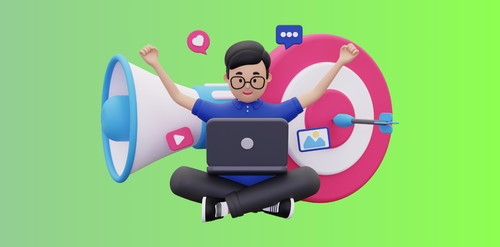







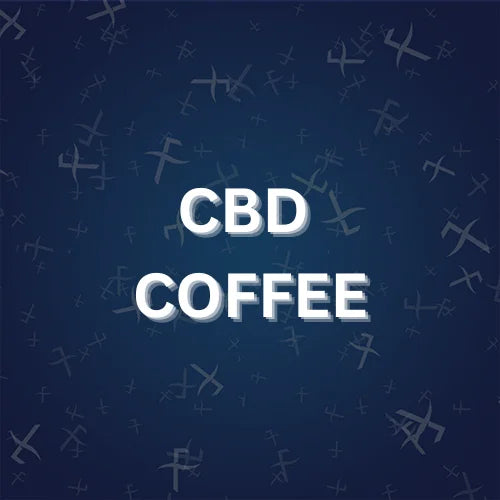


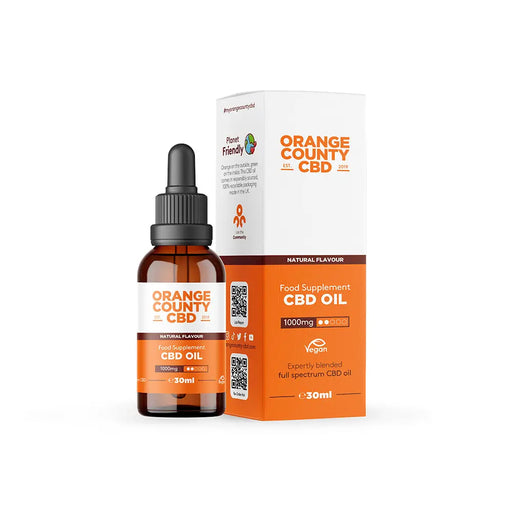
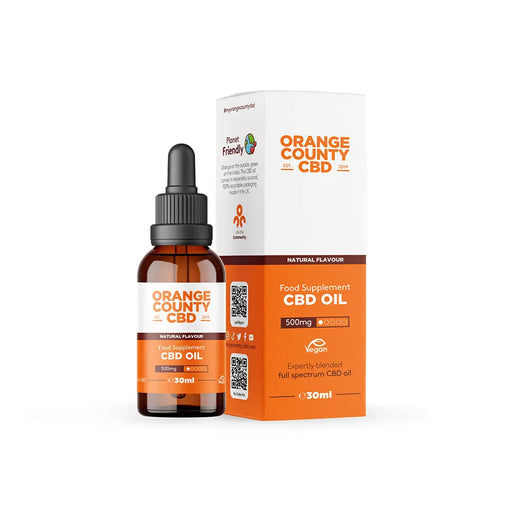
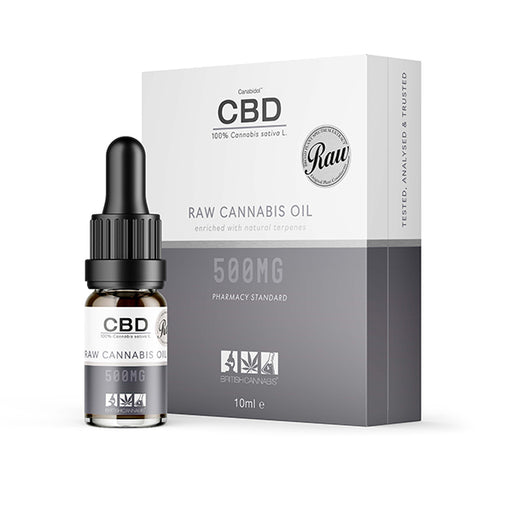
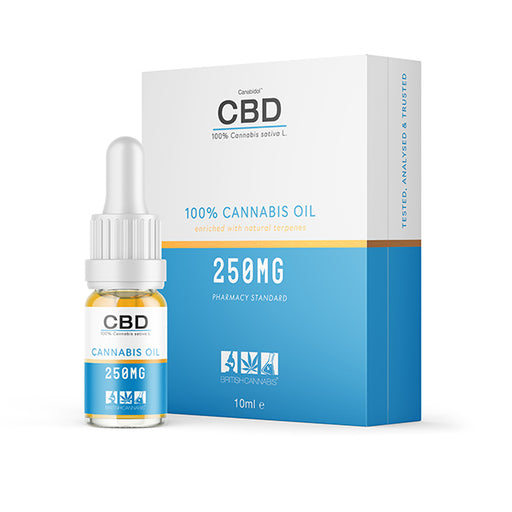
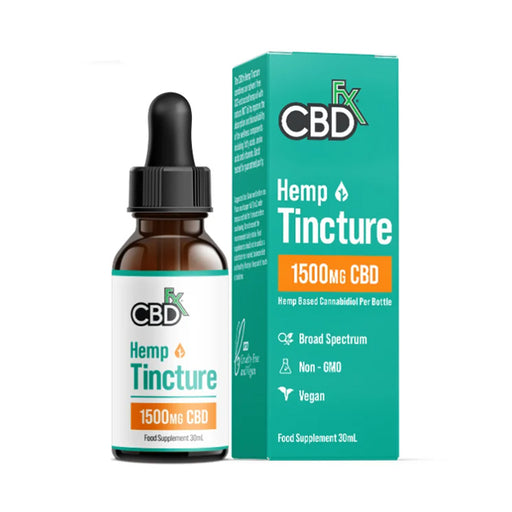
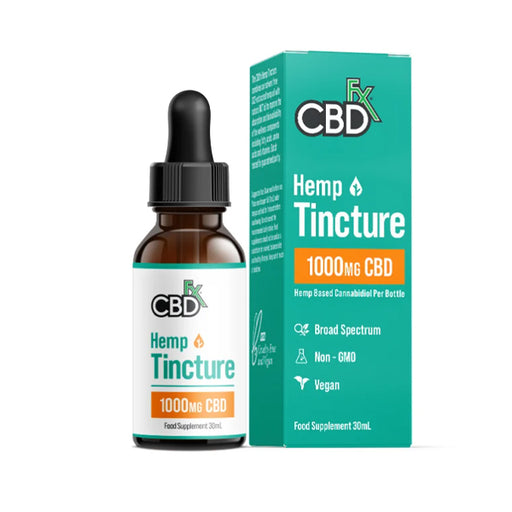
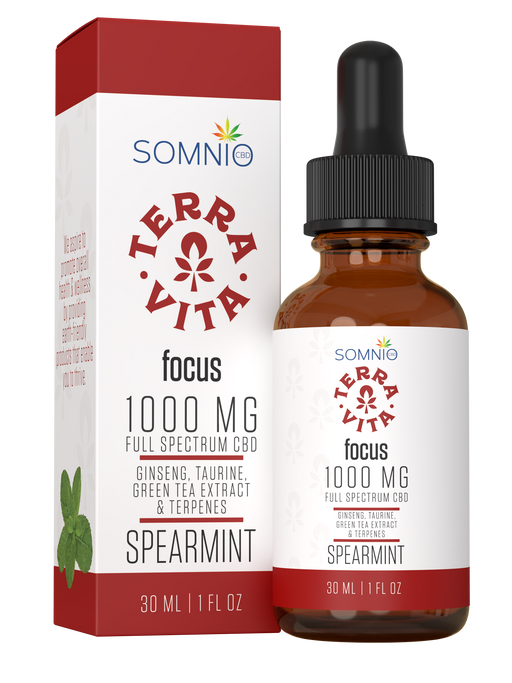
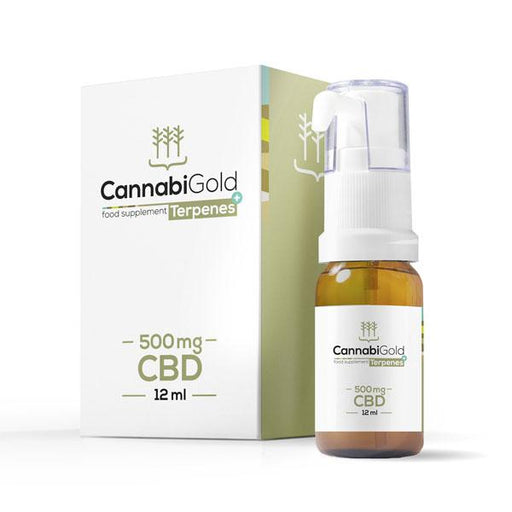
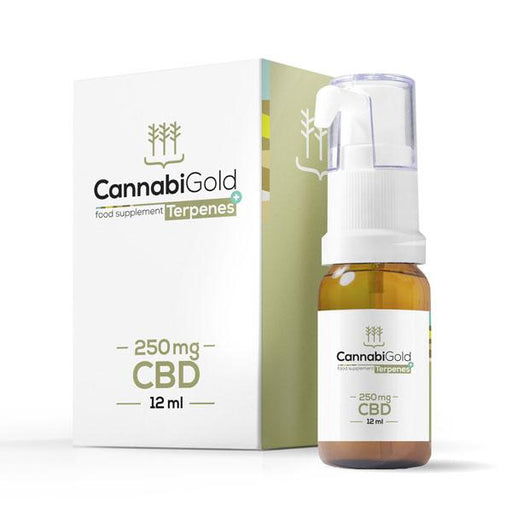
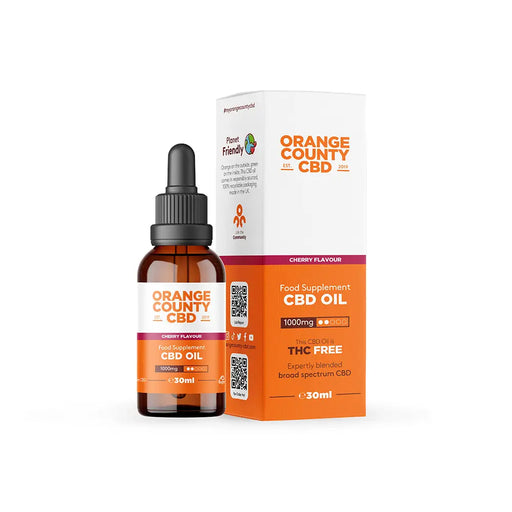
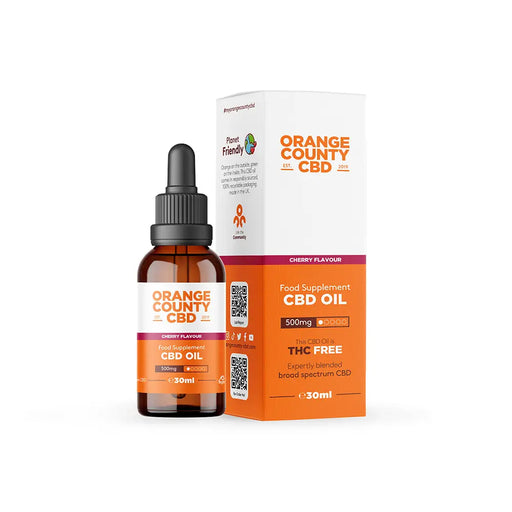
Leave a comment